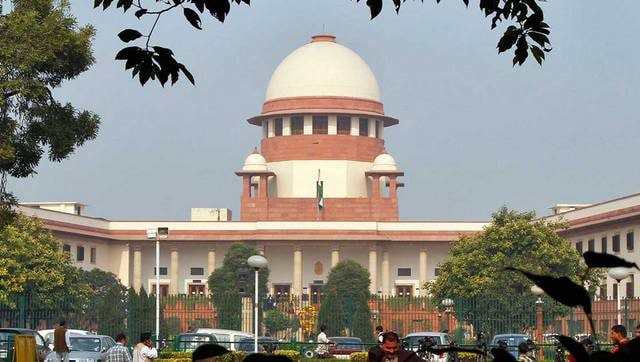Maharashtra, UP, Delhi among 18 states showing decline in daily new COVID-19 cases, says Centre
During a press briefing on the pandemic situation, the Centre said that an 'early trend of decline' in daily new COVID-19 cases and deaths have been noted in the country

Representational Image
New Delhi: An early trend of decline in daily new COVID-19 cases and deaths have been noted in the country, the government said on Tuesday.
cases and deaths have been noted in the country, the government said on Tuesday.
According to the government, Maharashtra, Uttar Pradesh, Delhi, Rajasthan, Chhattisgarh, Bihar, Gujarat, Madhya Pradesh and Telangana were among 18 states and union territories showing continued plateauing or decrease in daily new COVID-19 cases.
cases.
Addressing a press conference, Joint Secretary in the Health Ministry Lav Agarwal, however, said Karnataka, Kerala, Tamil Nadu, West Bengal, Punjab, Assam, Odisha, Himachal Pradesh, Meghalaya, and Tripura were among 16 states and union territories showing a continued increasing trend in daily new COVID-19 cases.
cases.
The number of districts with a week-on-week increase in weekly tests and decline in positivity rate has increased from 73 (on April 15-21) to 182 (April 29- May 5)
Districts that are showing a continued decline in cases since last two weeks include Pune, Nagpur, Palghar, and Nashik districts of Maharashtra; Lucknow, Varanasi, Kanpur Nagar (Uttar Pradesh); Bhopal, Gwalior (Madhya Pradesh); Surat (Gujarat); Patna (Bihar); Ranchi (Jharkhand); Raipur, Durg (Chhattisgarh); and Kota (Rajasthan).
Districts showing a continued increase in cases since last two weeks are Bengaluru Urban and Muysuru in Karnataka; Chennai, Chengalpattu, and Thiruvallur in Tamil Nadu; Ernakulam and Malappuram in Kerala; 24 Paraganas North and Kolkata in West Bengal; Jaipur in Rajasthan; Dehradun in Uttarakhand; East Godavari and Visakhapatanam in Andhra Pradesh; Satara in Maharashtra; and Khordha in Odisha.
Thirteen states have more than 1 lakh active COVID-19 cases each and 26 states have a positivity rate of over 15 percent, the government said.
cases each and 26 states have a positivity rate of over 15 percent, the government said.
Citing the case of Pune, he said night curfew alone with no restriction on gatherings has shown less significance in terms of controlling the growth trajectory of daily new cases.
He said stricter measures such as restrictions on mass gatherings and shutting of non-essential activities for a period of 15 days have helped reduce the rate of infection growth and the cases started plateauing.
India has been reeling under a calamitous second wave of coronavirus infection. However, the daily numbers of deaths and infections have started to go down.
infection. However, the daily numbers of deaths and infections have started to go down.
New cases of coronavirus in India fell to 3.29 lakh after 14 days, taking the infection tally to 2,29,92,517, according to the Union Health Ministry data updated on Tuesday.
in India fell to 3.29 lakh after 14 days, taking the infection tally to 2,29,92,517, according to the Union Health Ministry data updated on Tuesday.
A total of 3,29,942 infections were reported in a span of 24 hours, while the death toll climbed to 2,49,992 with 3,876 fresh fatalities, the data updated at 8 am showed.
After registering a steady rise for two months, the active cases have reduced to 37,15,221, accounting for 16.16 percent of the total infections, while the national COVID-19 recovery rate was recorded at 82.75 percent.
recovery rate was recorded at 82.75 percent.
India is conducting 18-20 lakh tests for detection of COVID-19 per day, ICMR Director-General Dr Balram Bhargava said, underlining that despite infection among laboratory staff, the test performance is still being maintained.
per day, ICMR Director-General Dr Balram Bhargava said, underlining that despite infection among laboratory staff, the test performance is still being maintained.
He the national COVID-19 positivity rate is around 21 percent and about 42 percent (310/734) of the districts are reporting a positivity rate more than the national average.
positivity rate is around 21 percent and about 42 percent (310/734) of the districts are reporting a positivity rate more than the national average.
also read

COVID-19 crisis: Modi govt's attempts to stifle criticism 'inexcusable', says Lancet editorial
According to the editorial, modelling suggested falsely that India had reached herd immunity, encouraging complacency and insufficient preparation

COVID-19 pandemic: From flip-flops over cargo flights to jibes at US, here's how China has responded to crisis in India
New Delhi currently appears to be reacting cautiously to Beijing's offers for assistance to deal with the COVID-19 crisis

'Can't remain mute spectator': SC terms COVID-19 as 'national crisis', questions Centre on differing prices of vaccines
There is a need for top court's intervention on certain national issues as there might be matters related to coordination between states, the bench said